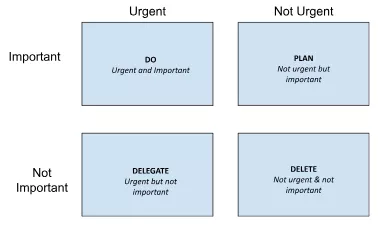
The work-life balance: How to get it right
25 August 2023
Finding the perfect work-life balance is akin to discovering a tailored solution that respects your circumstances. The key to sustaining this balance lies in your ability to remain flexible and continually evaluate your objectives and what matters most.
Ever feel like work is taking over your life? You're not alone. About 80% of professionals in India have confessed to grappling with work-life balance. In a world where the lines between work and home are becoming increasingly blurred, achieving a satisfying work-life balance can seem like a daunting challenge.
But it's not just about squeezing in a meditation class each week. It's about finding a way to manage your workload efficiently and effectively. Many people struggle to find harmony between their professional and personal lives, leading to feelings of being overwhelmed and overworked. The good news is, it doesn't have to be this way.(1)
Key takeaways:
- Achieving a satisfying work-life balance is crucial in today's world, where the boundaries between work and home are increasingly blurred.
- A balanced work-life dynamic involves conscious efforts to juggle professional and personal commitments while making room for self-care and overall well-being.
- The link between work-life balance and well-being is undeniable, with the potential to reduce stress, mitigate burnout, enhance productivity and creativity, and improve employee retention.
- Work-life balance is a personalised journey that respects individual circumstances and requires ongoing flexibility and evaluation of priorities to maintain a healthy equilibrium.
- Practical tips include planning in advance, effective time management, prioritising tasks, setting boundaries, pursuing personal interests, and more.
- Managers can support their employees' work-life balance by encouraging unplugging, facilitating social connections, implementing recognition programmes, conducting regular check-ins, and shaping a healthy company culture.
In this article, we'll explore the patterns of healthy and unhealthy work-life balance and offer insights for individuals and managers to navigate this delicate equilibrium better. Whether you're a business owner or an employee, if you want to enhance your work-life balance, you're in the right place. Let's uncover the keys to creating a more harmonious and fulfilling life.
Table of contents:
- What does work-life balance mean?
- Why is work-life balance important?
- Positive effects of balancing work and life
- Tips for improving your work-life balance
- How managers can support employees
- Find a work-life balance that suits you
What does work-life balance mean?
A balanced work-life dynamic refers to maintaining a harmonious relationship between your professional and personal life. 94% of employees believe that maintaining a balance between work and personal life is crucial. It entails a conscious effort to juggle your time and energy effectively to meet work and personal commitments while still making room for self-care and overall well-being. As per a report, cultivating a healthy work-life balance will also provide employees with additional time to share with their families.
In an ideal scenario, this philosophy envisions a world where you can devote time to activities that rejuvenate your inner self once the workday ends. This might involve quality time spent with loved ones, pursuing hobbies, or engaging in activities that bring you joy. However, everyone's life is different, and their responsibilities change constantly. So, what a good work-life balance looks like varies from person to person. It's like a constant conversation with yourself about how you use your time and where you focus your energy.
Examples of what work-life balance can look like for different people:
- An employee leaves the office on time to spend quality evenings with their family and friends.
- Regular breaks and lunch hours are taken to recharge and relax during the workday.
- The employee sets boundaries on after-hours work communication and avoids constant email checking.
- Time is allocated for regular exercise and maintaining a healthy lifestyle.
- The employee takes advantage of paid time off for vacations and mental rejuvenation.
- The employee pursues personal growth through education and self-improvement.
Did you know? 70% of couples with children recognize that work-life balance is vital for their overall happiness.
Why work-life balance is important
In today's world, where work and personal lives often intertwine due to the flexibility of modern work arrangements, achieving a healthy work-life balance is not just a convenience; it's a necessity. This balance is the foundation of well-rounded living, allowing you to savour and optimise every facet of your lives, beyond the confines of professional obligations. Your family, friendships, hobbies, personal health, and those precious moments for self-care become equally valuable.
Why is work-life balance essential?
- 77% of employees have experienced burnout at least once in their current jobs, a stark reminder of the toll imbalanced work-life situations can take on well-being.
- Moreover, a whopping 81% of millennial workers believe that work-life balance holds greater significance than salary.
The link between work-life balance and overall well-being is evident, where prolonged working hours can lead to detrimental health issues. According to a survey, 61% of employees report feelings of burnout and exhibit symptoms such as depression, anger, anxiety, physical aches, fatigue, and other mental health issues. These conditions, in turn, can exacerbate work-life challenges, pushing individuals towards burnout and other adverse consequences.
Contrary to the belief that long hours yield heightened productivity, a staggering 86% of employees emphasise the importance of work-life balance in their job satisfaction. The correlation between a balanced life and personal well-being is undeniable, making it a vital pursuit for both individuals and employers seeking to enhance overall quality of life and workplace productivity.
Did you know? Companies that actively promote work-life balance have shown double the productivity compared to those that don't prioritise it, as reported by Deloitte.
Positive effects of balancing work and life
Why is it crucial to manage your work-life balance effectively? Let's explore a few outcomes that arise when you achieve it:
Reduced stress
Research indicates that sustaining a healthy work-life balance can lead to a decrease in stress levels. When you're better at harmonising these aspects, you become better equipped to handle day-to-day stressors in a healthier manner. Rather than letting stress accumulate and overwhelm you, you can address challenges more effectively.
Read More: Feel-Good management: The new answer to workplace stress?
Lower risk of burnout
The feeling of being overworked can lead to emotional exhaustion and a disconnection from your job. As per a Gallup report, individuals who enjoy an improved work-life balance are less prone to experiencing burnout. When you maintain a balanced alignment between your work and personal priorities, you mitigate the risk of burnout stemming from work-related pressures. This equilibrium enables you to navigate work-related stresses more successfully.
Enhanced productivity and creativity
Prolonged stress and burnout can erode the quality of your work. On the contrary, a balanced approach to work, which involves regular disconnection and downtime, leaves you feeling more refreshed and, as a result, enhances your productivity. Forbes shared findings from a study stating that content employees can be up to 20% more productive at work compared to their unhappy counterparts. By removing constant stress, you create space for new ideas and promote clear, creative thinking.
Read More: How Employee Motivation Drives Success
Greater sense of well-being
Ultimately, a well-balanced life often equates to a healthier life. Achieving a finer balance between your work and personal life leads to greater life satisfaction and overall well-being. When you're able to make time for the things that truly matter to you, it contributes to a sense of personal success and contentment.
Improved employee retention
For managers and employers, balanced workers are happier and more likely to stay committed. A significant 87% of HR leaders recognise the importance of maintaining a proper work-life balance in reducing employee turnover, making it not just a personal benefit but a strategic advantage for organisations as well.
Tips for improving your work-life balance
Maintaining a healthy work-life balance is an ongoing journey that involves deliberate actions and conscious choices. Here, we'll explore several practical tips to help you achieve a more harmonious equilibrium between your professional and personal life.
1.Plan in advance
Incorporate work activities into your daily life in a way that allows for a blend of work and leisure, social interactions, or fitness activities. For instance, consider taking virtual meetings while going for a walk or inviting a friend over to work together.
2.Time management
Use techniques like the Pomodoro timer, which involves working in focused, short bursts, to maximise your efficiency. This method can help maintain focus and prevent burnout by breaking your workday into manageable chunks. Create an environment that minimises distractions, helping you make the most of your time.
3.Prioritise tasks
Use the Eisenhower Matrix to categorise tasks into four quadrants: urgent and important, important but not urgent, urgent but not important, and neither urgent nor important. Focus on completing tasks in the first quadrant to maximise productivity. Reference Image for Eisenhower Matrix

4.Set boundaries
It's crucial to set a definitive end time for your workday, even when working from home. Reinforce this boundary by shutting down work-related devices, locking your office, or scheduling post-work activities. For instance, if your work hours are from 9 AM to 5 PM, make it clear that you won't be available for meetings or work-related tasks outside these hours.
5.Delegate responsibilities
At work, delegate tasks to your team that others can handle to reduce your workload. Numerous thriving companies, such as Google and Facebook, entice talent through a more relaxed managerial approach, delegating authority and involving subordinates in decision-making.
When employees are entrusted with power and authority, they gain greater autonomy in their work, leading to various positive outcomes like increased job satisfaction, commitment to the organisation, innovative tendencies, and improved task performance. Delegation also serves as motivation for employees to elevate their skills and expertise.
6.Practice mindfulness
Engage in mindfulness meditation or deep breathing exercises for a few minutes each day to become more attuned to your emotions and physical sensations. 73% of exclusive mindfulness meditators cite overall well-being and disease prevention as motivations, with 92% meditating to relax. This practice can help reduce stress and increase your self-awareness. Being mindful also allows you to notice when you may be neglecting personal needs in favour of work.
7.Set blocks of time
Designate specific time slots for various tasks, such as checking and responding to messages, attending meetings, and tackling mentally-intensive work. Align these tasks with your peak productivity hours.
8.Leverage technology to unplug
Employ apps that block distracting websites during working hours and restrict work-related tools after-hours. Try to use a separate device for work or maintain a work-free device to enable complete disconnection.
9.Enjoy lunch breaks
Make the most of your lunch break, whether you go out for a change of scenery or connect with colleagues. This shift in your routine can be refreshing and serves as a reminder to take care of yourself and have a meal.
Read More: Could The Lunch Break be The Way Towards Better Bonding And Better Teamwork?
Did you know? A staggering 66% of workers admit to frequently skipping at least one meal a day due to the demands of their work.
10.Prioritise time off
Don't hesitate to take time off when needed, including for health reasons. Prioritising your well-being not only enhances your health but also contributes to your overall productivity and happiness.
11.Pursue personal interests
Find activities you're passionate about outside of work, which make it easier to disconnect from work-related tasks and maintain a healthy work-life balance. Hobbies and interests can reenergise you and enhance your vitality.
12.Reevaluate your work
If your current job feels disconnected from your passions and interests, consider exploring how you can align your work with activities that provide a sense of meaning and satisfaction. While work can't fulfil all your needs, it should offer moments of accomplishment and connection.
13.Communicate with your manager
Openly discussing your workload and priorities with your manager can help alleviate the fear of not doing enough. Such conversations can lead to streamlining tasks or considering additional help.
14.Seek professional guidance
If you feel overwhelmed and unsure about where to start in improving your work-life balance, working with a coach or therapist can be invaluable. These professionals can ask the right questions and help you identify changes that will have the most significant impact on your well-being and how to begin implementing them.
Remember, improvement is an ongoing process, and change doesn't happen overnight. Start with small, achievable steps to gradually enhance your work-life balance. Strive for a realistic balance over perfection, as each day may present varying challenges and opportunities for balance. Flexibility and continuous assessment of your goals and priorities are key to finding and maintaining that elusive equilibrium.
How managers can support employees
As the modern workplace continues to evolve, managers play a crucial role in building an atmosphere that prioritises the well-being of their team members. Managers who effectively support their employees in achieving this balance reap the benefits of enhanced job satisfaction, increased productivity, and the cultivation of a positive, thriving work culture.
Here are a few effective ways for managers to support their employees in achieving a healthy work-life balance:
Encourage unplugging
Encouraging employees to leave their work devices behind during vacations shows that you value their time off and understand the importance of disconnecting from work. By explicitly permitting this, you create a culture where relaxation and rejuvenation are priorities, which can help reduce burnout and stress.
Facilitate social connection
Organising virtual gatherings and social activities creates a sense of community and camaraderie among employees, even in remote or dispersed teams. Demonstrating your own self-care by taking lunch breaks and encouraging breaks communicates that it's okay to step away from work for a while, supporting a healthier work-life balance.
Implement employee wellness programmes
By incorporating wellness programmes, you're actively promoting well-being within your organisation. These programmes can include rewards, employee incentives and recognition who prioritise their health and happiness. The Pluxee Rewards and Recognition Suite can facilitate the implementation of such programmes, making it easier to acknowledge and reward employees for their dedication to well-being.
Frequent interactions
Regular check-ins about well-being during one-on-one meetings show that you care about your employees as individuals, not just as workers. It helps identify and address any unspoken concerns or stressors that might be affecting their performance or overall well-being.
Shape company culture
Being mindful of the company culture you create is crucial. By discouraging a culture of constant instant messaging and setting boundaries on after-hours communication, you respect your employees' personal time. Promoting meaningful interactions over constant responsiveness encourages a healthier and less stressful work environment.
Read More: The Varied Dimensions of Quality Of Life
Find a work-life balance that suits you
In the pursuit of work-life balance, the ultimate goal is to find an equilibrium that suits you. It's not a one-size-fits-all endeavour but a highly personalised journey, influenced by your unique circumstances, priorities, and aspirations. As we've explored various strategies and tips to improve your work-life balance, it's important to remember that there's no perfect, universal formula.
Instead, strive to create a balance that aligns with your needs and desires. Recognise that on some days, work may demand more of your attention, while on other days, you'll have the time and energy to devote to your personal life and passions. The key is to remain flexible, assess your goals and priorities regularly, and make necessary adjustments to maintain a healthy balance.




